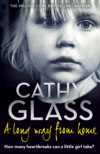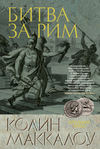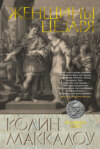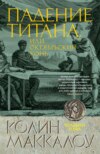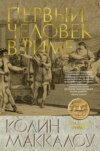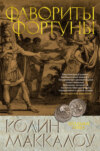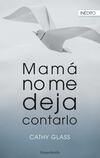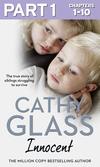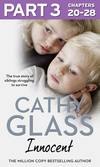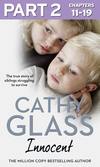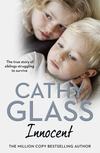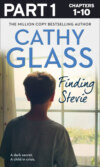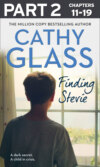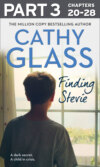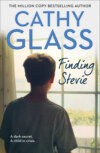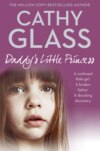Czytaj książkę: «A Long Way from Home»

Copyright
Certain details in this story, including names, places and dates, have been changed to protect the family’s privacy.
HarperElement
An imprint of HarperCollinsPublishers Ltd
1 London Bridge Street
London SE1 9GF
First published by HarperElement 2018
FIRST EDITION
© Cathy Glass 2018
Cover layout design © HarperCollinsPublishers Ltd 2018
Cover photograph © Elly De Vries/Arcangel (posed by model)
A catalogue record of this book is available from the British Library
Cathy Glass asserts the moral right to be identified as the author of this work
All rights reserved under International and Pan-American Copyright Conventions. By payment of the required fees, you have been granted the nonexclusive, non-transferable right to access and read the text of this e-book on screen. No part of this text may be reproduced, transmitted, downloaded, decompiled, reverse engineered, or stored in or introduced into any information storage retrieval system, in any form or by any means, whether electronic or mechanical, now known or hereinafter invented, without the express written permission of HarperCollins e-books.
Find out about HarperCollins and the environment at
Source ISBN: 9780008275891
Ebook Edition © February 2018 ISBN: 9780008275938
Version: 2018-10-08
Contents
Cover
Title Page
Copyright
Acknowledgements
Anna’s Story
PART I: THE PARENTS’ STORY
Chapter One: Lana
Chapter Two: Another Chance?
Chapter Three: Anxious
Chapter Four: Anastasia
Chapter Five: Shocked and Saddened
Chapter Six: Lana’s Bear
Chapter Seven: Time Apart
Chapter Eight: Return
Chapter Nine: Court Hearing
Chapter Ten: All New
Chapter Eleven: Exhausted
Chapter Twelve: Another Worry
Chapter Thirteen: Good Girl
Chapter Fourteen: Settling In
Chapter Fifteen: Bad Parenting?
PART II: ANNA ARRIVES AT CATHY’S
Chapter Sixteen: Foster Care
Chapter Seventeen: First Night
Chapter Eighteen: I Haven’t Got a Home
Chapter Nineteen: Memories
Chapter Twenty: Bad at Home
Chapter Twenty-One: Review
Chapter Twenty-Two: Frightened of Her Daughter
Chapter Twenty-Three: Save a Child
Chapter Twenty-Four: A Family Torn Apart
Chapter Twenty-Five: Ian
Chapter Twenty-Six: Missing Her
Chapter Twenty-Seven: Bad Ending
Chapter Twenty-Eight: A Long Way from Home
Suggested topics for reading-group discussion
Cathy Glass
If you loved this book …
Moving Memoirs eNewsletter
About the Publisher
Acknowledgements
A big thank you to my family; my editors, Carolyn and Holly; my literary agent, Andrew; my UK publishers HarperCollins, and my overseas publishers who are now too numerous to list by name. Last, but definitely not least, a big thank you to my readers for your unfailing support and kind words. They are much appreciated.
Anna’s Story
Some stories have to wait to be told to gain the full picture and a better understanding of what happened. Anna’s story is one of them.
PART I
THE PARENTS’ STORY
Chapter One
Lana
Although the children weren’t babies, they appeared as helpless as the day they were born. Dressed only in nappies and ragged T-shirts, they were sitting or lying on the hard floors, or incarcerated in their cots. Their large eyes stared out blankly from emaciated faces. Some children were obviously disabled, others not, but all were badly undernourished and clearly developmentally delayed. The four rooms in the orphanage were hot and airless in the middle of summer. Flies circled around the broken ceiling fans and buzzed against the grids covering the windows. The only toys in any of the rooms were a few balls and a handful of building bricks, but no child played with them. And the silence was deafening and unnatural. Not one of the thirty or so infants cried, let alone spoke.
‘This nice one,’ the care worker said in broken English, pausing at a cot containing a Down’s syndrome boy. ‘He no give you trouble.’
Elaine looked with renewed horror at the child rocking back and forth in the cot. A few wisps of fair hair covered his otherwise bald head, open sores bled on his lips and his face was so pale it was doubtful he had ever felt the sunlight. He stared blankly into the distance. Elaine went to speak to him but the care worker was already moving briskly to the next cot. ‘Or this one,’ she said, tapping the metal bars of the cot and ignoring the fact that the child had been sick.
Elaine fought back tears and looked to her husband to say something.
Ian cleared his throat. The care worker – a large, brusque woman – seemed to be in charge. He didn’t know what role she played and didn’t want to upset her and risk their chance of a child. ‘I’m sorry, we don’t understand,’ he said, almost apologetically. ‘We were supposed to adopt a particular child. She’s called Lana. We have a photograph of her here in our paperwork.’ He went to unclip his briefcase.
The care worker tapped his arm. ‘No. No. Lana, that baby dead. You choose another baby. We have plenty.’
Elaine’s hand shot to her mouth. ‘Dead? When?’ she cried.
‘We weren’t told,’ Ian said.
The care worker shrugged. ‘You on plane.’
‘She died yesterday?’ Elaine asked, horrified.
‘Maybe too late to tell you. You choose another baby. Plenty. Over here.’ She led the way to another cot on the far side of the room.
‘I want to go,’ Elaine said, taking Ian’s arm.
‘We are leaving,’ he said to the care worker, who was waiting for them by the cot.
‘You come here and see baby. Talk to it.’
‘No!’ Elaine cried.
‘You no want baby?’ the care worker asked, a mixture of incredulity and impatience.
‘Not like this,’ Ian said. ‘We came here for Lana and you tell us she is dead. We are very upset.’
‘But you can choose another baby,’ she said, as though they were in the wrong.
‘No,’ Ian said firmly. ‘We can’t.’
‘Suit yourself,’ she said, clearly offended. Leaving the cot, she headed out of the room and towards the main door, a bunch of keys jangling at her hip. They followed. ‘Lots of other parents come here and take our babies,’ she snapped.
‘But not us,’ Ian said, annoyed.
They waited while she unlocked the door. Ian hung back as Elaine stepped outside. ‘Where’s the doctor we’ve been dealing with?’ he asked. ‘He was supposed to meet us here.’
The care worker shrugged, either not understanding or refusing to answer.
‘Dr Ciobanu,’ Ian tried again. ‘We spoke to him on the phone. Is he here?’
She shook her head. ‘You go now. I’m busy.’
‘You tell him we came?’ he said, but she pushed at his arm, signalling for him to leave.
Ian and Elaine stepped outside and the large metal door clanged shut behind them. A lone child screamed from inside.
Elaine burst into tears and Ian put his arm around her. ‘I don’t believe it,’ she sobbed. ‘All this time, working towards the adoption, and that heartless woman tells us our baby is dead.’ Although they’d never met little Lana, they’d felt a bond with her ever since they’d first received her details and photograph, and considered her their daughter. This was supposed to have been the final stage in the adoption process that had begun nearly two years before and had included a detailed social worker’s report, references, medicals, and endless form filling and expectation. Today they should have met Lana for the first time, given the doctor their paperwork and signed the forms for court. And while they waited for the court hearing they would have visited Lana each day, loving her more and more. But that had all come to an abrupt and distressing end. Their baby had died.
Ian gently guided his wife to the taxi they had waiting.
‘No baby?’ the taxi driver asked, seeing their faces as they got into the back.
‘No. The baby died,’ Ian replied, his voice shaking with emotion.
‘Oh dear. It happens in this country,’ the driver said matter-of-factly. ‘Many babies die here.’
Ian nodded as Elaine wiped her eyes. They knew about the high infant mortality rate and the shocking conditions in some of the state-run orphanages that had contributed to their decision to adopt from this country.
The driver glanced at them in the rear-view mirror, started the car and pulled away. ‘I find you a healthy baby,’ he said. ‘My cousin knows a lady who finds couples babies. You no worry. She find one for you, and she very cheap.’
‘That’s kind of you, but no thank you,’ Ian said politely. They’d been warned about these types of arrangements by other couples who had adopted from this country. There were many parents on the internet who were happy to share their experiences of international adoption to help others. While not always illegal, these private adoptions were fraught with problems, and money was demanded at each stage of the process. Yet ironically they’d followed the correct procedure and look where it had got them!
‘You think about it,’ the driver said. ‘I give you my telephone number when we stop.’
‘OK,’ Ian said, without the strength to protest.
The air conditioning in the reception of their three-star hotel was a welcome relief after the heat outside. Ian and Elaine, desperate to be alone, caught the lift straight up to their room on the third floor. The maid had been in and everything was clean and tidy and the bed made. It was such a stark contrast to the poverty outside that Elaine felt a familiar stab of guilt.
‘I don’t think we’re meant to have children,’ she said, utterly defeated and sitting on the bed.
Ian sighed and poured himself a glass of water from the flask that was refreshed daily. ‘I don’t know,’ he said, as dejected as his wife. ‘I expected to face some hurdles, most of those we’ve been talking to who adopted from here did, but I never imagined this. To arrive and be told our child is dead, and then be shown other children, is heartless beyond belief.’
‘Do you think what she’s doing is legal?’ Elaine asked.
‘Who knows?’
‘Those poor children. She kept calling them babies but they weren’t. Some of them could have been six or seven, and most of them were disabled.’
‘I suppose they are the ones no one wants to adopt,’ Ian said sadly. ‘That care worker probably thought as Lana had died we’d be desperate and grateful for any child.’
‘I feel awful but I really can’t take on a disabled child. I told our social worker that right at the beginning.’ Her voice caught. ‘I’m just not cut out for it.’
‘I know, love, me neither. We’ve been honest, and it wasn’t fair to put us in that position.’ He sat beside her on the bed and rested his head back, exhausted.
They were having to deal with so many emotions: bereavement, shock, disappointment and anger. At forty-two and thirty-eight respectively, this had been Ian and Elaine’s last chance of a family. Elaine was infertile, IVF had failed, and they were considered too old to adopt a baby or very young child in their own country, the UK.
‘I think we should just go home and forget about it,’ Elaine said, leaning her head on Ian’s shoulder.
‘Yes, I agree. But I’m going to speak to that Dr Ciobanu first and tell him what I think. I don’t want other couples going through what we have.’
Half an hour later, when Ian felt up to it, he telephoned the orphanage but was told by a care worker that Dr Ciobanu wasn’t there, so he left a message (which he wasn’t sure the care worker understood), saying he’d call back later. After two hours, having heard nothing, Ian tried again and was told bluntly, ‘No doctor.’ But later that evening, with plans to change their flights to the following day so they could return home as soon as possible, they received a phone call from Dr Ciobanu.
Ian steeled himself to say what he had to; he wasn’t an aggressive man and avoided confrontation, but this needed to be said. Yet before he had a chance, Dr Ciobanu said, ‘Mr Hudson, I’m sorry I wasn’t there to meet you today but my wife was taken to hospital.’
Thrown, Ian said, ‘Oh, I see. I hope it’s nothing serious.’
‘It wasn’t, thank you. A funny turn. She is home now. If you come to the orphanage tomorrow morning you can meet your child.’
‘I don’t understand,’ Ian said, shocked and confused. ‘We were told our baby was dead.’ Elaine moved closer to the handset so she, too, could hear.
‘Yes, Lana died,’ the doctor said evenly. ‘She was a sickly baby so perhaps it was for the best that it happened here, rather than when you got home. I have another child. She is not sickly. You come here tomorrow and I will arrange it.’ Ian glanced at Elaine, not knowing what to say. ‘You come tomorrow and we go ahead,’ he repeated. Taken completely unawares, Ian looked at Elaine for direction. ‘You come here tomorrow at eleven and meet Anastasia. Now I have to go to my wife. Good night.’ The line went dead.
Chapter Two
Another Chance?
Elaine and Ian were up most of that night discussing what had happened and what they should do. Prior to the doctor’s phone call they’d decided to bring forward their flight and return home childless, yet now they were being offered the chance of another child, reigniting their hopes of having a family of their own. They were calmer now but still had big concerns. This new child, Anastasia, had appeared very quickly, and with no background information they were imagining all sorts of horrifying scenarios, including that she could have been abducted from her natural family or the parents might have been put under pressure or even paid to give her up. Yet while the care worker they’d seen the day before probably didn’t have the authority to find them another child, Dr Ciobanu certainly did. He was a recognized professional in the adoption process in this country and had been recommended to them by other couples who had successfully adopted through him.
Ian and Elaine talked themselves round in circles. They knew nothing about Anastasia, yet other couples had told them not to place too much emphasis on any details given before they’d seen the child, especially the child’s birthday. Record keeping was haphazard in this country, and if a woman gave birth in a remote village it could take her weeks to register the child or get to the orphanage. Also, children going for adoption were portrayed in the best possible light, as developing countries such as this one relied on international adoption to take their orphaned and abandoned children. There was a lot to consider, but in the early hours they decided they would visit Dr Ciobanu as he’d asked and at least hear what he had to say about Anastasia, and take it from there.
‘Perhaps it will be all right,’ Elaine said hopefully as she finally drifted off to sleep.
‘Whatever the outcome, I will always love you,’ Ian replied.
They were awake again at 5 a.m., showered and dressed, and then went down for breakfast as soon as the restaurant opened at 6.30 a.m. On the way through the lobby Ian stopped off at reception and booked a cab to pick them up at 10.30. The hotel had been recommended by Dr Ciobanu and the cab firm it used had experience of ferrying couples who were adopting.
There were only four others in the restaurant having breakfast at that time, all businessmen in suits. The hotel had thirty rooms, and although it had been recommended by the doctor, as far as Elaine and Ian knew they were the only would-be adopters staying at present. Some of the staff knew why they were there, and when they’d checked in the receptionist had said she would arrange for a cot to be put in their room once the adoption had gone through.
Unsurprisingly, Elaine had little appetite that morning and only managed half a croissant and a cup of coffee. Ian, who showed his anxiety in different ways, had scrambled eggs on toast, but kept checking his phone and nervously straightening the napkin on his lap. Neither of them spoke. Not only were they exhausted from the emotion of the day before and too little sleep, but there was also nothing left to say. Either they still had a chance of adopting or they’d return home as they’d arrived – a couple and not a family.
During breakfast an email came through to Ian’s phone from one of the families they’d got to know online who were also going through the process of adopting. They were eager to know how the meeting with Lana had gone. ‘I’ll reply later,’ Ian said. ‘I can’t face it now.’
After breakfast, they returned to their hotel room and tried to read the books they’d brought with them, but concentrating was near impossible. At 10.20 they were in the lobby waiting for the cab. They knew that little happened on time in this country – sometimes it happened earlier but more often late. The cab arrived at 10.40; not the same driver as the day before but he knew why they were there. Elaine and Ian would have liked to be left to their thoughts during the journey, but the driver was chatty and direct.
‘You going to adopt?’ he asked almost as soon as they got in.
‘We’re not sure,’ Ian replied.
‘Why not?’ He glanced in the rear-view mirror, puzzled. Elaine moved out of his line of vision so she didn’t have to talk.
‘Our baby was very sick and died,’ Ian said.
‘Oh. I’m sorry. They find you another one?’
‘Possibly.’
‘Boy or girl?’
‘Girl,’ Ian said.
‘I have children, a boy and a girl,’ the driver continued amicably as he drove. ‘You meet your child today?’
‘Maybe, we don’t know yet,’ Ian replied. Elaine gazed out of her side window. Although international adoption was well known in this country, it was still a source of interest to the locals, possibly because adoption wasn’t part of their culture, hence all the state-run orphanages. They didn’t adopt or foster and didn’t really understand why anyone would.
‘Many couples adopt from here,’ the driver said as he drove.
‘Yes, I know,’ Ian agreed.
‘This is your first trip here?’
‘Yes.’
‘Some couples come back two, three times to adopt. They must like our children a lot.’ He grinned and Ian met his gaze in the mirror with a polite smile. ‘I take one couple three times to orphanages,’ he continued. ‘They from America. They adopt brothers and sisters. Six in all! Very good people with lots of money.’
Ian nodded. ‘But we don’t have lots of money. We saved up to make this trip.’
‘You good people too.’
Yet while it was a strain having to make conversation, hearing about successful adoptions was heartening and proof that the system did work. Perhaps they had just been very unlucky and it would work out in the end. Perhaps.
It was 11.15 when the cab pulled up in the lane outside the orphanage. Ian opened the door to get out. ‘You wait here?’ he asked the driver.
‘Yes. No rush. Very important you spend time with your child.’
There wasn’t a meter running – cab journeys were quoted in advance and included any waiting time. Elaine joined Ian in front of the high metal gate as the driver wound down his window and lit up a cigarette. A wire-netting fence ran all around the perimeter of the orphanage, with a patch of land separating it from the building. This strip of land would have made a good outside children’s play area had it not been so badly overgrown. Ian rattled the metal gate – the only way of attracting attention, as there wasn’t a bell – and they waited. There’d been some rain in the night, and although the sun wasn’t out the humidity had risen. Elaine knocked away a fly.
‘They come soon,’ the driver said, and sounded his car horn.
The door to the orphanage opened and the care worker who’d dealt with them the day before came out, keys on the short chain at her waist. Elaine took a deep breath. She really didn’t like the woman. Without acknowledging them, the care worker nodded to the driver and unlocked the gate. ‘Thank you,’ Ian said, and they waited just inside while she locked the gate. They then followed her up the cracked cement path and in through the main door, which again she locked behind them.
‘You wait here,’ she said brusquely, and disappeared down the corridor, her shoes clipping heavily on the hard, tiled floor. A solitary child screamed in the distance and Ian threw Elaine a reassuring smile.
A few minutes later Dr Ciobanu appeared from the corridor. Although they’d never met him, they recognized him from his photograph online. In his mid-forties, of average height and build, he was wearing a dark suit with an open-neck shirt.
‘Pleased to meet you,’ he said pleasantly and, smiling, shook Elaine’s hand, then Ian’s. ‘So you decided to give me another chance?’ Ian nodded awkwardly. ‘No worries,’ he said, clapping Ian on the arm. ‘Come through to my office and we can talk.’
His office overlooked the front of the orphanage, and through the window they could see their cab waiting in the lane. Dr Ciobanu motioned for them to sit down. The room was small and cramped, with an old wooden table acting as a desk in the centre, and three chairs. Filing cabinets lined one wall and a fan stood on top of one beside an open bottle of water. ‘Would you like a drink?’ the doctor offered, going to the bottle.
‘No, thank you,’ they both said politely. The bottle would very likely have been refilled with tap water, and while this was safe for locals to drink – they’d built up a resistance to its bacteria – it upset foreigners’ stomachs.
Placing his tumbler of water on the table, Dr Ciobanu opened the top drawer of a filing cabinet and removed a folder. ‘Your paperwork,’ he said, returning to sit behind the table. He carefully opened the file before him. Elaine and Ian saw the top page was their initial application sent a year ago, with passport-sized photographs of both of them.
‘I have the rest of the paperwork you need in my briefcase,’ Ian said.
Dr Ciobanu nodded and then, folding his arms, leaned forward in earnest. ‘I am sorry you were disappointed yesterday. It is not good practice to have a couple arrive and find the child is no longer with us. It is a pity I could not be here to tell you personally. We are very short-staffed and my two care workers have no time for breaking bad news gently.’ He threw them a knowing smile and Ian, at least, started to relax.
‘As I said last night on the phone,’ the doctor continued, ‘Lana was a very sick baby. We did our best to save her but it wasn’t enough. She died peacefully in her sleep.’
‘What was the matter with her?’ Elaine asked, her voice slight.
‘She wouldn’t feed, something wrong in her gut, but you needn’t worry about that. We have to look to your future.’ His gaze went from one to the other, gauging their reaction, and Ian nodded. ‘I do not have a photograph yet of Anastasia. She has only just been given up for adoption. But she is healthy and you can see her shortly. Her mother works abroad a lot, as many single women here have to. She has been leaving her with us since she was a baby. Now the mother has met a man who is going to marry her, so she will be leaving this country for good for a better life.’
‘And she can’t take her child with her?’ Elaine asked, horrified.
‘No. It happens,’ Dr Ciobanu said matter-of-factly. ‘The man may not even know she has a child. The mother believes her daughter will be better off here in the orphanage, as many parents in this country do.’ He sighed with exasperation, as though he didn’t agree with this. ‘I will explain to the mother that her daughter will have a better life being adopted by you, rather than being left here.’
‘So the child isn’t free for adoption yet?’ Ian asked.
‘No, but she soon will be. I will speak to the mother today and get her to sign the forms, which I will take to the court personally.’ Elaine and Ian knew that this wasn’t so unusual. Part of the doctor’s role was as an adoption facilitator – arranging and completing the formalities of adoption as well as advising the adopters on procedure. ‘The court will set a hearing date and once the adoption has gone through you will be issued with a new birth certificate, passport and visa for the child.’ This was standard and what would have happened with Lana’s adoption had she lived.
‘How long will all this take if we decide to go ahead?’ Ian asked. ‘With Lana we were already a long way through the process. It would have been completed in three to four weeks. I have to work; we can’t stay here indefinitely.’ He hoped this didn’t sound abrupt but they had to be practical.
The doctor gave a small shrug. ‘It shouldn’t take too long. The legal system in this country can run slowly at times, but I will do everything in my power to speed things up.’ Which didn’t really tell them much.
‘How old is the child?’ Elaine finally thought to ask, overwhelmed.
‘Two and a quarter,’ the doctor said, glancing at a handwritten note tucked into their file. ‘Don’t worry, I will make sure you have all the correct paperwork for her, including a medical.’
‘She’s a lot older than Lana,’ Elaine said.
‘Yes, but she is strong and healthy. Why don’t you come and meet her? I am sure you will be happy.’ Dr Ciobanu immediately stood. He was used to having his word acted on, although he came across as caring. Ian and Elaine knew he only charged the minimum for his services, while some adoption facilitators were growing rich on the proceeds of international adoption, although no money reached the natural parents. It was illegal to give them anything – gifts or money.
Elaine’s heart missed a beat as she tucked her hand into Ian’s and they followed Dr Ciobanu out of his office. Could it possibly be? The moment they’d anticipated, worked towards and dreamed of for so long? Was it possible that after all the ups and downs and disappointments, they were going to meet a child who could be theirs? Ian’s hand tightened in hers and Elaine knew he was as nervous as she was.
Darmowy fragment się skończył.
